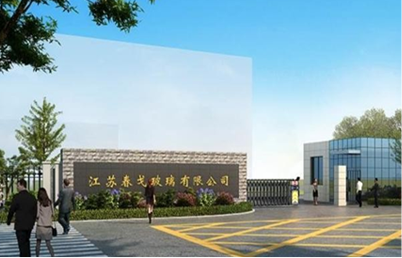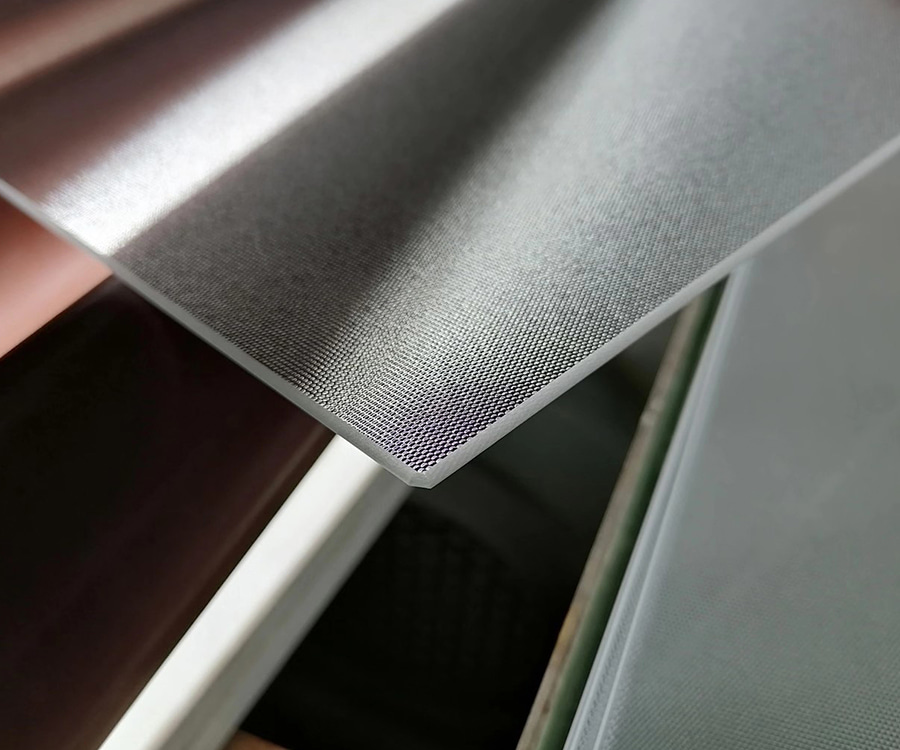AR Solar Coating Glass enhances solar panel efficiency through anti-reflection by addressing key optical challenges associated with traditional glass surfaces. Here's an overview of how this technology works:
Minimizing Reflection Losses: AR Solar Coating Glass incorporates anti-reflective coatings that are designed to minimize reflection losses. Traditional glass surfaces can reflect a significant portion of incident sunlight, leading to reduced light absorption by the solar cells. The anti-reflection coatings on AR Solar Coating Glass help mitigate this issue by allowing more sunlight to pass through the glass and reach the solar cells.
Increased Light Transmission: The primary goal of anti-reflection coatings is to increase the transmission of light through the glass. By reducing the amount of reflected light, more sunlight can penetrate the glass surface and be absorbed by the solar cells beneath. This enhanced light transmission directly contributes to higher energy yields and improved overall efficiency of the solar panel.
Optimized Angle of Incidence: Anti-reflection coatings on AR Solar Coating Glass are designed to optimize the angle of incidence for incoming sunlight. This means that sunlight can effectively enter the solar cells even when it strikes the glass at non-optimal angles. This feature helps maintain consistent energy production, especially in conditions where the angle of sunlight varies throughout the day.
Reduced Surface Glare: Traditional glass surfaces can produce glare due to reflected sunlight, potentially affecting nearby surroundings.
AR Solar Coating Glass with anti-reflection technology minimizes surface glare, making it more visually appealing and suitable for various applications, including building-integrated photovoltaics (BIPV).
Enhanced Overall Performance: By reducing reflection losses, increasing light transmission, and optimizing the angle of incidence, AR Solar Coating Glass contributes to the overall performance improvement of solar panels. This is particularly beneficial in increasing the energy output of photovoltaic systems, making them more efficient and cost-effective over the long term.
Adaptability to Different Wavelengths: Anti-reflection coatings can be designed to be effective across a broad range of wavelengths, ensuring that sunlight in the visible and near-infrared spectrum is efficiently transmitted. This adaptability allows AR Solar Coating Glass to perform well under diverse environmental conditions and varying sunlight angles.
AR Solar Coating Glass enhances solar panel efficiency through anti-reflection by minimizing reflection losses, increasing light transmission, optimizing the angle of incidence, reducing surface glare, and contributing to the overall performance improvement of solar energy systems. This technology plays a crucial role in maximizing the conversion of sunlight into electricity, making solar panels more effective and reliable.
What Impact Does AR Solar Coating Glass Have on the Durability and Longevity of Solar Panels?
AR Solar Coating Glass significantly enhances the durability and longevity of solar panels through its unique features and protective properties. One key aspect is the protective layer provided by anti-reflective coatings, which acts as a shield against environmental elements such as dust, dirt, and pollutants. This protection helps prevent potential damage and ensures the sustained efficiency of the solar cells over time.
The resistance to abrasion offered by the anti-reflective coatings is another critical factor. This resistance protects the glass surface from scratches and physical wear, addressing potential damage caused by various environmental conditions and cleaning processes. The chemical resistance of AR Solar Coating Glass further contributes to its durability, safeguarding against chemical degradation due to exposure to pollutants or cleaning agents.
A notable advantage is the reduced maintenance requirements facilitated by the protective properties of AR Solar Coating Glass. With less accumulation of dirt and debris on the surface, the need for frequent cleaning cycles is minimized. This is particularly advantageous in remote or challenging-to-access locations where maintenance can be a logistical challenge.
The weather resistance of AR Solar Coating Glass is enhanced, providing a protective barrier against rain, snow, and other weather conditions. This protection helps prevent moisture infiltration and potential corrosion or weather-related damage to the solar panels. Additionally, the coatings offer UV protection, safeguarding the underlying solar cells from the degrading effects of prolonged UV exposure.
Maintaining optical clarity is crucial for efficient light transmission and optimal energy harvesting throughout the lifespan of the solar panel. The durability of
AR Solar Coating Glass ensures that its optical properties, such as transparency and anti-reflective capabilities, remain consistent over an extended period.
Importantly, the compatibility of AR Solar Coating Glass with common cleaning methods is designed to ensure that routine cleaning does not compromise the anti-reflective coatings. This compatibility allows for effective removal of dirt and debris, contributing to the long-term performance and reliability of solar panels.








